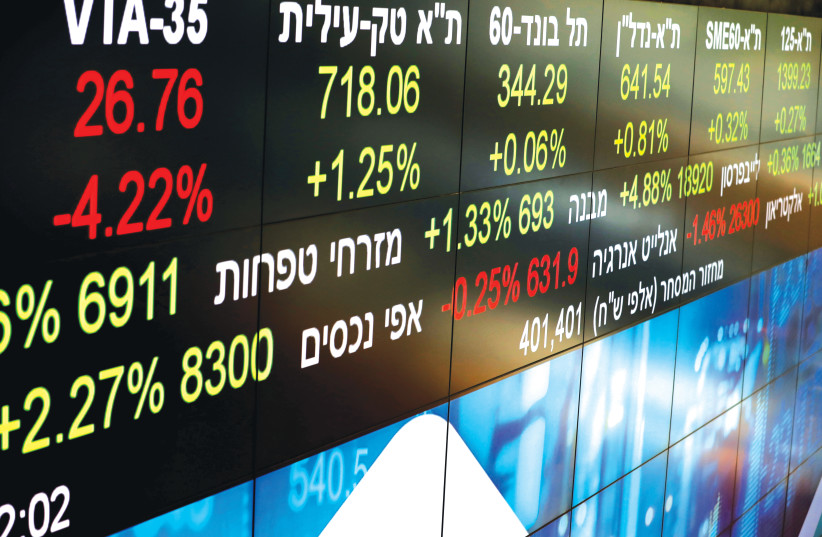For the past few months, Wall Street investors have lost the appetite that they had for tech stocks at the start of the COVID pandemic. The Nasdaq Index is down 9.7% from its peak but according to Oppenheimer Israel senior equity analyst Sergei Vastchenok over the past year half of the 100 Israeli companies traded on Wall Street (not only the new ones) have fallen more than 50% from their peak and only 20% have had single-digit falls.
Vastchenok said, "There is certainly a change in investors' tastes. The process began with remarks by Fed chair Jerome Powell about plans to raise the interest rate, and these comments were somewhat more aggressive in the most recent Fed meeting.
"Historically there is an inverse relationship between long-term bond yields and company pricing," he continued. "Zero rates support higher pricing for growth companies and so these remarks are the main factor behind the falls. In terms of activities of the companies themselves, there are those experiencing a slowdown and those that have not experienced a slowdown have fallen — the process is general."
A parallel process that Vastchenok identifies is the expectations of investors for a swifter recovery of the economy from the COVID crisis. "Despite the wave of cases in Israel and around the world, the market is behaving as if COVID is already over in all investment options."
"People are assuming that there won't be a lockdown and learning to live with COVID. Even if the cases today are less lethal than in previous waves, the rise in deaths is limited, the vaccinations work, so there is no macroeconomic influence. We see accelerated growth and inflation and investors are seeking options in the old economy, which have been under the radar for sure for the past two years during COVID but even before that."

"Stocks identified with COVID are falling"
Vastchenok said that the macroeconomic improvement will influence and benefit value companies in macroeconomic activities in areas like energy, banking, and some consumer industries.
"During COVID, it was the opposite. There was strong negative growth and investors went for options with 'COVID immunity' that had succeeded in growing in difficult macroeconomic conditions. There were of course companies that benefitted directly from the situation like Zoom and Moderna. The stocks identified with COVID are now falling strongest."
Among such Israeli stocks are Wix, Fiverr and LivePerson. They are also continuing to grow but investors don't care, although it is clear that there is a slowdown in growth. Growth figures peaked in the second quarter of 2021(growth compared with the preceding quarter), and since then most companies have had a slowdown in the rate of growth. The second quarter of 2020 was the low point for COVID and then began a massive purchase of solutions for software, cloud, video, cybersecurity and the like. Some of these purchases will reach normalization in and fall in 2022 after organizations made a decade of purchases in one year."
The shift to value stocks reminds Vastchenok of after the dot.com bubble burst in 2000 but he stresses that this is not in the same proportions and the companies weren't strong then like they are today."
What is the significance for the Israeli tech companies that held IPOs on Wall Street in 2021?
"All the Israeli companies that held IPOs are growth companies and not value companies and so the shift from growth companies to value really hits them. These are mainly new shares that have not had time to build an investor base. After all, if an investor comes in opportunistically at the IPO, they don't care if they sell the share. It will take time. Companies need to build their investor base and this is a very good time for many investors to begin looking at the opportunities that exist.
Vastchenok added, "There are very many investment opportunities. It's true that when it rains everyone gets wet but this is the time to choose between quality stories and those that are less so. Not all the IPOs over the past year were high-quality companies both in Israel and abroad, and we need to see who will succeed in maintaining high growth over time. If the growth was only because of COVID — it is less interesting."
